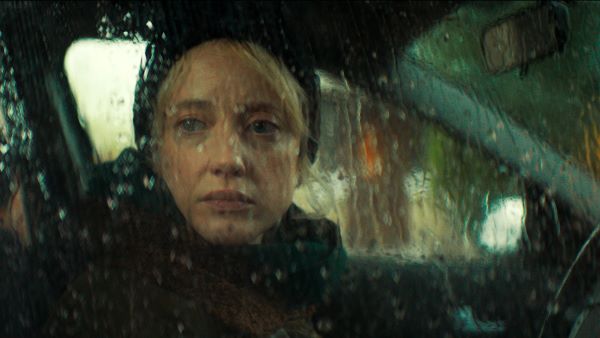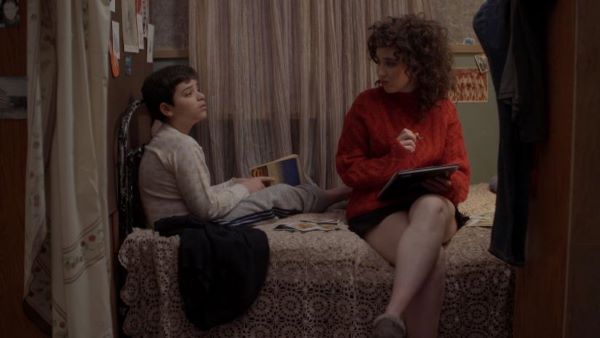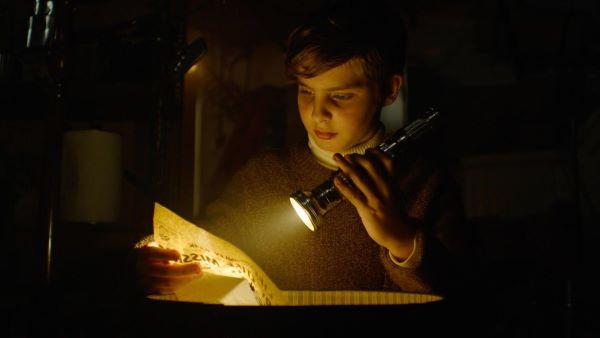
Last year’s edition of the South by Southwest multimedia festival was cancelled a week before it was to begin because of the emerging pandemic in the United States. In the year since, the event has been reinvented as SXSW Online while still offering a substantial slate of films and plenty of panels and keynote speakers (not to mention the music offerings).
Never having attend SXSW, I can’t compare this year with an in-person edition, but having lived in Austin, Texas, I can readily imagine how it would be a charged, high-energy party. The online experience, though undoubtedly different, was a step-up from other virtual film fests that have had rigid time limits for viewing movies. The digital platform, in fact, was easy to navigate. Once users had reserved a ticket, they were able to view a film more than once over the course of a number of days—and you could even overschedule without penalty.
SXSW Online also made a concerted and successful attempt for attendees to connect with each other either through Zoom meetings or via its digital platform. In effect, you didn’t feel so isolated participating more than a thousand miles away. I probably stuffed more films and other activities in one day then would have been possible crisscrossing Austin and running around looking for a bite to eat.
The flexibility of SXSW Online allowed filmgoers to actually attend panels that are usually elusive at most festivals, where everything competes for one’s attention all at once. A session on the opening day, a 90 Minute Film School, was dense with information, and without lulls. (The key to film fund-raising: network, connect, publicize.) An afternoon panel discussion with film festival programmers was an intimate Zoom call in which the panelists were up for any question, and SXSW’s programming staff was accessible in a Film Community Meet Up. Programmers had no easy answers or a playbook for how to make the digital shift; during the last year, everyone was making it up as they went along. And yes, many believe hybrid festivals of in-person and online screenings will take place in the future, even after the pandemic.
But what about the movies? Without any big studio titles—Charlize Theron in Atomic Blonde or Steven Spielberg’s Ready Player One—to dominate the press coverage, the lineup of narrative films leaned toward low-budget indies by emerging filmmakers. The list below is a spot-check, an indication of a little bit of what this year offered in narrative films, domestic or international, and documentaries.
Here Before
Just like the narrative feature selections at the recent Sundance Film Festival, European filmmakers once again outshone their American counterparts. Produced by BBC Film, Northern Ireland Screen, and Pia Pressure, the psychological thriller Here Before has a sheen missing from the U.S. feature film selections—it’s polished but not too much so. Director Stacey Gregg has written a tight script, a pungent addition to the nightmare-in-the-daytime genre, where every line and scene falls into place. The precise and brisk editing also tells you everything you need to know in a discreet yet direct manner. Even with a fairly low budget, the production values are high, from the acting to the score of swirling strings that are strategically deployed throughout.
Remember Birth, starring Nicole Kidman as an Upper East Side wife who believes her first husband’s soul resides inside an adolescent boy? Though it offers a similar supernatural premise, Here Before is more sinister but not as creepy, though they both provide a showcase for their lead actresses.
The movie make great use of the autumnal Northern Ireland location with its craggy coast, desolate country winding roads, and the mist encroaching upon the hamlet where Laura (Andrea Riseborough) lives with her husband and their adolescent son. Next door, a new family has moved in, also a family of three, a married husband and wife and their daughter, Megan (Niamh Dornan), who is about the same age Laura’s late daughter would have been. Being a good neighbor, Laura one afternoon offers the stranded girl a ride home from school, but she becomes a lot more solicitous day by day, trouncing the line between friendliness and intrusiveness. Megan resembles her daughter, and shares some of her quirks. The young girl also strangely says she had attended her new school in the past, which isn’t true.
Laura is the most complex role Riseborough has had recently and an invigorating change of pace. It’s refreshing to see her smile after her robotic killer mastermind in Possessor and her withdrawn, grieving aid worker in Luxor. Here she’s allowed to fully lose control.

Potato Dreams of America
If stereotypical images of post-Glasnost Russia bring to mind drunkenness, poverty, electric shortages, virulent anti-Semitism and homophobia, you’ll have a good sense of the satiric tone in Wes Hurley’s semi-autobiographical first feature, which also doubles as an air kiss to Hollywood’s dream factory.
The film expands upon the director’s 2017 short, “Little Potato,” and much of what it depicts is true. It begins in 1985 in Vladivostok, as a five-year-old Potato (Hersh Powers)—real name, Vasily—looks on as his drunken father beats his mother. The boy frames the scene through his hands, as though he’s an auteur figuring out how to film the scene. He imagines his parents’ skirmish as a dance number on a proscenium stage—it’s life after the fall of the Soviet Union as seen through a boy’s flights of fancy.
After his Dad moves out, his divorced mom, Lena (Sera Barbieri), opens the door to a new boyfriend—who has a color TV. Late at night, the set picks up a third, renegade channel which airs American movies with happy endings. Pretty Woman becomes a big hit among the neighbors, with one sighing, “I wish I was a hooker in America.” “Don’t we all,” is the response. The movie, in fact, begins with a foreword by Quentin Crisp: “I’ve always been American in my heart, ever since my mother took me to the movies.”
As an adolescent, Potato turns to religion to find his only friend, Jesus Christ (Jonathan Bennett, with long flowing locks of hair), at least in his imagination. While mom’s at work, they sit at home watching Jean-Claude Van Damme fight in a loin cloth. Apparently, based on this film and the recent Sundance hit Flee, Van Damme was the male international sex symbol for gay kids in the 1990s, apologizes to Brad Pitt. Though the country will later switch from communism to capitalism, the corruption remains the same; Lena, a prison doctor, is threatened to alter reports of murdered prisoners, and she hasn’t been paid in two months.
Wearing his heart and humor on his sleeve, Hurley is clearly having fun, all for the audience’s benefit. The director goes on to gently skewer America of the late ’90s in the second half, which takes a hard right, politically, when Potato and his mother, a mail order bride, cross the ocean to live in Seattle with her new husband, the older and doctrinaire John (Dan Lauria, so far from The Wonder Years). Now the story line moves away from the drab, studio-bound sets of Russia that have a low-budget, community theater feel to the sunny (at least in sprit) Pacific Northwest, where Potato, a teen in high school, thrives in his new freedoms: he checks out Gregg Araki’s The Living End more than a hundred times. Lena, though, becomes entrapped, living under the threat of divorce and deportation if her new husband rejects her; he had another wife, also from Russia, who has since gone back to Russia.
The writing and acting are strong enough that the movie doesn’t need the overpowering score in the second half, which perhaps intentionally sounds like a Lifetime movie circa 2000. Though sometimes the acting leans toward the self-conscious, both Tyler Bocock as American Potato and Marya Sea Kaminski (a dead ringer for film critic Stephanie Zacherek) as American Lena play their roles, ahem, straight, and leave the farcical elements to the director and the other actors. Both Lauria and Lea DeLaria, as Potato’s stern, old-school grandma, are refreshingly cast against type. (The Love Boat’s Lauren Tewes has a scene-stealing turn as a busybody neighbor.) Whether it’s set in wintry Russia or America, the film celebrates taking whatever pleasure you can to endure the day-to-day, whether through movies, friends, or karaoke.

The Lost Sons
SXSW offered at least one film to help fill the true crime glut on cable and streaming, The Lost Sons, produced by CNN Films, which also made the eerily similar Three Identical Strangers. The new documentary, directed by Ursula Macfarlane, begins with a kidnapping in 1965 and from there the mystery deepens and multiplies, uncovering three likely crimes, at the minimum.
In the mid-1970s, 10-year-old Paul Fronczak went exploring in his home’s crawl space and discovered boxes of faded news clippings about a kidnapped baby back in 1964 Chicago. When Paul asked his mother about it, she simply replied that he was kidnapped, and did not elaborate. A student nurse, Mary Trenchard Petrie, witnessed the kidnapper, disguised as a nurse, take the baby from the nursery at Michael Reese Hospital. Now more than 50 years later, she guides viewers about the facts of the abduction, alongside the made-for-cable reenactments.
Fronczak describes his upbringing in Oakland, Illinois, as “a Rockwell painting” with a blue-collar dad who provided well for his family, yet something felt off. His younger brother, David, was much closer and compatible with his parents. Becoming a father in his thirties prompted Paul to know more about his family’s history. It would perhaps solve the nagging question of whether or not he was actually related to his folks. However, the revelations from a DNA test only compound the mystery.
Effortlessly intriguing, the somber investigative piece withholds resolution. A Jack of many trades (and no pun intended, for that’s among the many names that have at times been given Paul), Fronczak is also an executive producer for the film. He, along with his family, distant relatives, and another eyewitness to yet a crime, offer a straightforward account of an anything-but-linear family history.






Leave A Comment